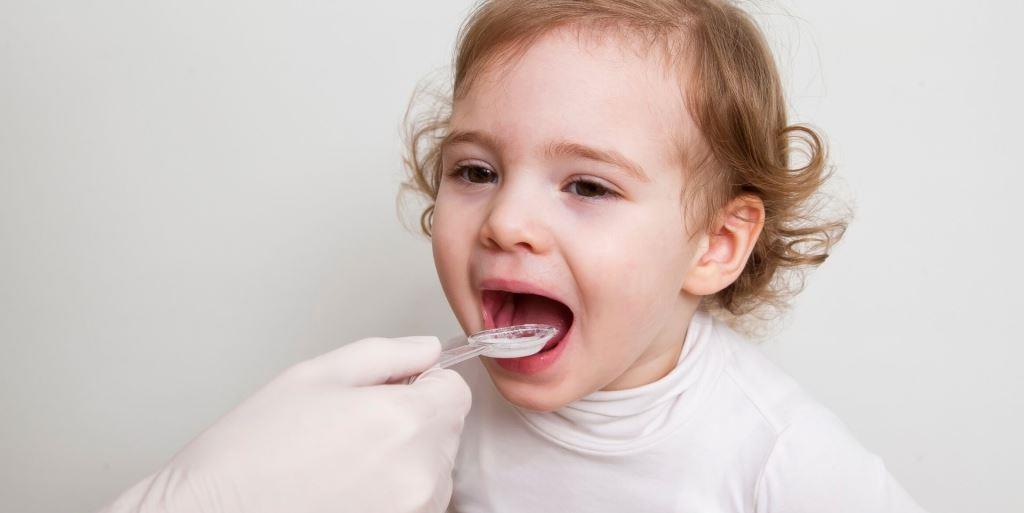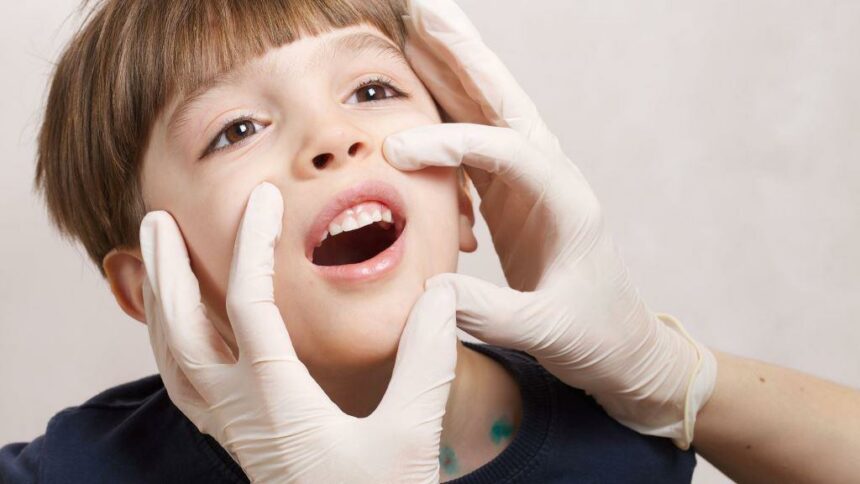Is your child restless, slightly feverish, has a sore throat and an unpleasant smell coming from the mouth? This could be a sign of such an ailment as stomatitis in your child. Find out what the causes are, what the symptoms are and, most importantly, what the treatment is and what can be done to prevent a recurrence.
Stomatitis in a child - causes
Surely every parent knows that the golden rule for every toddler is "what goes into your hand goes into your mouth". Children learn about the world in many different ways: they look at everything, listen to everything, but most often they experience things through touch.
Hands are not everything - it is the tongue that the child uses most eagerly! Hence the desire to put everything he can into his mouth.
And yes - we should allow children to explore the world with all their senses, but unfortunately - there are bacteria on many of the objects that toddlers are so keen to try. We can't protect our children from every bacteria, every virus - it's not even worth trying! - but it is worth keeping an eye on everything that ends up in a child's hands, rather than on everything that is clean.
This will reduce the spread of bacteria, and consequently the occurrence of various diseases or ailments, including stomatitis in the child. It is not without reason that it is called 'dirty hands disease'. It is caused precisely by viruses that can be transmitted precisely through contact with immaculately washed hands.
Importantly, the virus can be in the body for a long time but not produce symptoms. These can be triggered by factors such as fever, severe stress, but even contact with the sun!
We also cannot fail to mention thrush. They are the consequence of a yeast infection - and this can even happen during birth! Moulds become active as a result of reduced immunity.
NOTE: These should not be confused with afts. These are not caused by a fungal infection, but by viruses.

What are the symptoms of stomatitis in a child?
The symptoms of stomatitis in children vary - often it will just be bad breath and increased salivation. It is also not uncommon to have a fever (but not a high fever!), a sore throat and a sore mouth. The toddler may have problems sleeping and may also lose their appetite. During exudative stomatitis in a child, red spots may appear. Caution - these can bleed.
Herpes stomatitis is characterised, in addition to the previously mentioned symptoms, by small blisters. These burst, forming painful erosions.
Thrush, on the other hand, will manifest as a white, lumpy coating on the mucous membrane. Aphthae, on the other hand, are yellow or white spots with a red border. They appear on the tongue, cheeks and lips.
Treatment of stomatitis in children
Treatment is usually by various types of medication - ointments, syrups, suspensions. We advise against using anything on your own - a visit to the doctor is a must! The doctor will assess the condition of the child and prescribe appropriate preparations. It is worth going to the doctor as soon as possible and not to underestimate any symptom.
Stomatitis in a child is a very unpleasant experience - it is worth making it last as short as possible! Therefore, as soon as you notice worrying symptoms, make an appointment immediately.

Prevention is better than cure - prevention
It will not surprise you to learn that the first step is to take care of oral hygiene. In the morning and evening, wash your baby's gums with a special pad or gauze pad and cooled water. In this way you will get rid of bacterial plaque.
Also remember to wash and scald any bottles thoroughly, dummies or teethers. And - as far as possible - make sure your toddler doesn't put dirty objects in his mouth!
COMMENT. Many parents downplay the fact that milk teeth should be cared for in the same way as permanent teeth. Read our article: "How do you look after milk teeth in children and why is it so important?".
A child's first visit to the dentist - an investment in the future
Do you know when your child should have their first visit to the dentist? Not when there is trouble with his milk teeth. On the contrary - as soon as the first tooth appears!

That's when it's the perfect time to adaptation visit. If in doubt, we encourage you to read the article: "Your child's first visit to the dentist in the UK".
By getting your child to the dentist quickly, the toddler will be used to the surgery. This means he won't be afraid of it in the future! And this in turn will pay off with a beautiful, healthy smile that is not just a matter of aesthetics. It is well known that rotten teeth are a danger to the whole body.
But don't worry - if your child is already afraid of the dentist, read our article: "Fear of the dentist in a child - how to combat it?".
We encourage you to use the services of our clinic - we know what to do to make sure that your child leaves the appointment with a smile! We invite you - take a look at our Facebook and contact us.

